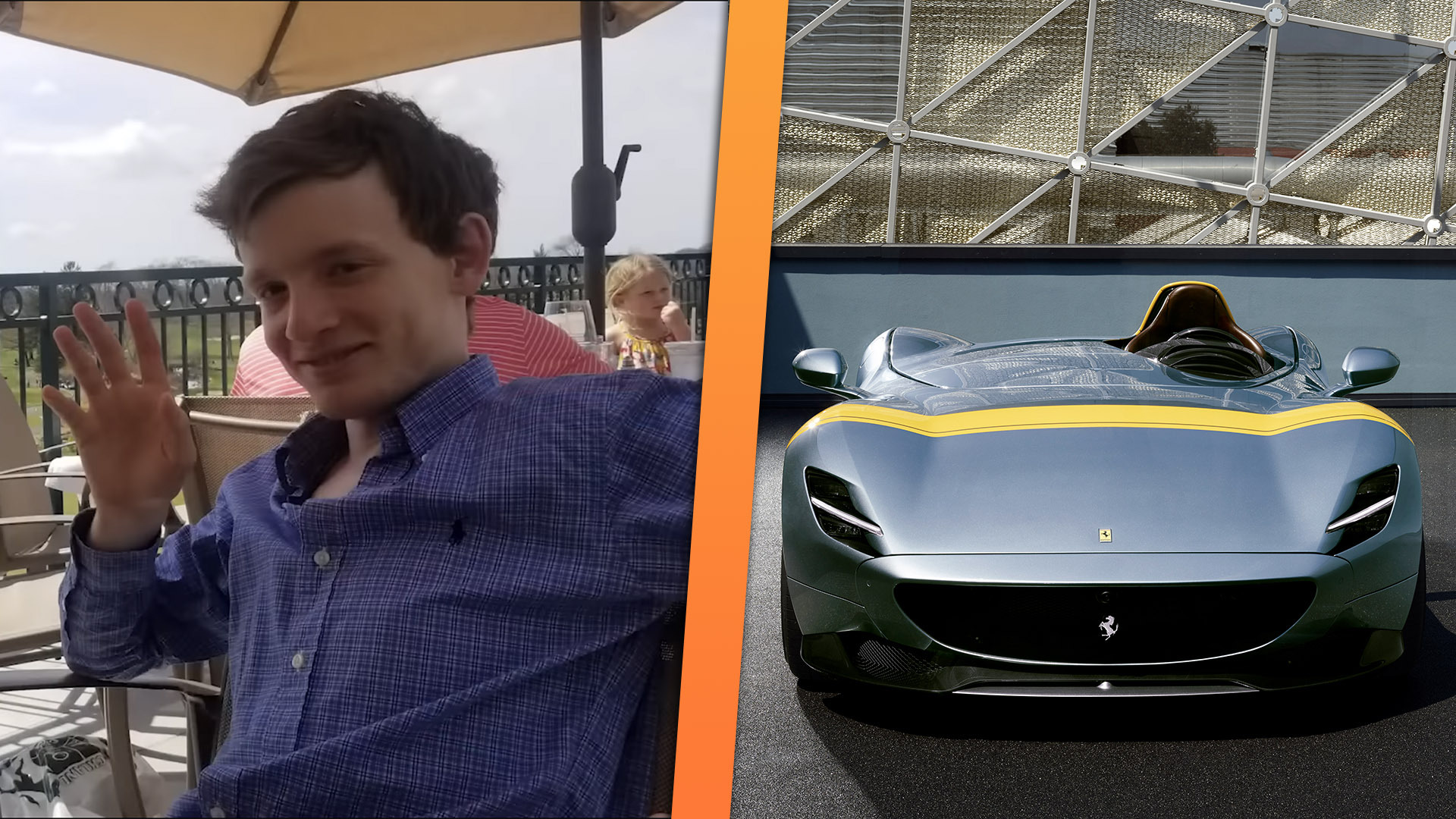

At just 24 years old, Daniel Lesin appeared to have it made. With an apparent revolving collection of high-end supercars, including Ferraris, he looked like the kind of owner who’d wind up on Ferrari’s go-to client list for the newest and most exclusive models. Coming out of seemingly nowhere into the New Jersey supercar scene, Lesin soon became a regular at Cars and Coffee meets, drives, and other events. Lesin claimed his father was an oligarch, that he had a watch business that funded his car hobby, and basically lived the life of a stereotypical trust fund kid.
So, when orders for the Ferrari Monza SP1 and SP2—the cars that kicked off Ferrari’s hyper-exclusive “Icona” series based on the legendary models of Ferrari’s past—opened back in 2018 for the most loyal and prolific customers to buy one new, those who didn’t make the list were willing to shell out seven figures just to get an allocation. Lesin appeared to have secured multiple slots and began selling them, and he felt like the kind of Ferrari owner who’d get the nod for a Monza SP—a logical hookup for less-connected buyers seeking one.
There was just one problem: It was all an illusion, according to the FBI.

On June 2, Lesin was arrested by the FBI and charged with committing approximately $3 million in wire fraud related to selling Ferrari Monza SP allocations he allegedly never had. Lesin’s own parents (well-to-do people, for sure, but certainly not oligarchs) reached out to one of his acquaintances—supercar personality and “Super Speeders” series creator Rob Ferretti—for help bailing out their son over the federal charges. From there, the billionaire backstory finally unraveled. Lesin wasn’t who he said he was. Still, years of lies and faking the high life successfully sold his story enough that he was able to keep up an alleged Ferrari scam for four years until his arrest.
Lesin remains in federal custody as he awaits trial on four counts of wire fraud, currently set to begin on Sept. 26. Per the indictment, wire fraud carries a maximum sentence of up to 20 years in jail with a $250,000 fine on top of what he already owes buyers who never received a Monza. It’s up to the judge as to whether the sentences for Lesin’s four charges run concurrently or consecutively.
Here’s how it all came crashing down.
Just Believable Enough
“He showed up and instantly, I was like, who’s this young guy in the Ferrari? And the stories start coming,” Ferretti explained in a video posted to his YouTube channel in June after Lesin was arrested. The two met in 2018 when Lesin showed up to a local enthusiast drive in New Jersey in a Ferrari 488 Spider. Lesin had gotten to know the local Cars and Coffee promoter for Bergen County, who’d brought him to the gathering.

Claiming to be the son of a Russian billionaire, Lesin lived the life of a trust-fund kid with lots of private jet travel, expensive watches, and of course, cars. One victim of the Monza scheme who requested to remain anonymous described Lesin’s demeanor as disarmingly humble, not your prototypical con man. Lesin even claimed to have invented gambling software in college that his rich father helped sell to gambling magnate Steve Wynn. That, too, seemed like a typical, “but I’m self-made” brag that rich kids are wont to make, but Ferretti didn’t think it passed the sniff test.
“This is key to perpetrating a fraud,” Ferretti said on YouTube. “Have somebody else sell your story for you … Not everything makes sense, but it sort of could feel right. It’s how they’re able to carry this on for so long.”
To Ferretti, Lesin hanging around in the same circles seemed mostly harmless. Lesin was a fan of Ferretti’s work, a customer of Ferretti’s Adventure Drives, and nice enough in person. Ferretti even stored many of Lesin’s cars—or at least cars that Lesin claimed were his—which included a Ferrari F12tdf, a Ferrari 458 Speciale, a Lamborghini Murciélago SV, and a Porsche 918. Yet, as Ferretti all too accurately explained, “Having cars doesn’t mean you have money.”

It does get people talking, though, which opened other potential avenues to perpetuate the con. High-end travel agent David Eisen described his interactions with Lesin to The Drive as bizarre, and not like those he has with other wealthy clients. Eisen co-founded the supercar-centric Lux Rally, and while Lesin never ran any of Eisen’s rallies, several of Eisen’s clients knew Lesin from other supercar events and referred him over for travel arrangements. As late as early 2022—after several civil cases had been filed against Lesin regarding Monza allocations that never materialized—one of Eisen’s longtime clients had referred Lesin over, swearing that the negative news online about Lesin simply wasn’t true.
Lesin soon acquired a reputation among event planners for asking for a big suite at a big discount, such as the time he tried booking a birthday weekend in Las Vegas through Eisen’s company. The whole deal fell apart over smaller amounts most of Eisen’s clients simply don’t think twice about, and the two never ended up working together.
“I’ve heard some crazy stories about him, saying he paid $15,000 a night for a presidential suite and then having a rally organizer confirm that he actually was spending $2,000 and tried to upgrade at the desk,” Eisen told The Drive in a phone interview. “I think that was part of his motive was to create the perception.”

Ferretti, too, credited perception with being a big part of Lesin’s game. “It was always based on credibility,” Ferretti told The Drive via email. “People give credibility to those with expensive things and expensive friends.”
How He Did It
By September 2018, all 499 allocations of the Ferrari Monza SP1s and SP2s had already been assigned to loyal clients Ferrari calls its “Ambassadors.” The car was highly sought after, and anyone with an allocation looking to pass it on could potentially make bank. Flipping a limited-run vehicle allocation is heavily frowned upon and if Ferrari catches wind of a flip, it can sometimes result in that allocation being revoked. “You can sell it, but it’s got to be hush-hush,” Ferretti explained in his video.
Dan Lesin had all the appearances of being one of those lucky few. In his defense against a lawsuit filed by Beverly Hills Pagani prior to his arrest, Lesin claimed he and his family “have collectively owned some 75 Ferraris, and they have a strong and longstanding relationship with Ferrari … This unique relationship allowed them to go through a specialized application process and order a Ferrari Monza, an extraordinarily rare and special vehicle.”
Between July 2018 and September 2021, Lesin worked through several LLCs he’d set up—Core Nexus, ALDL, SBPCS and Grey Black Holdings—to start selling Ferraris he either claimed to have an allocation for or claimed to already own, according to court documents. Through these various LLCs, Lesin allegedly bolstered his claims that he secured future allotments of Monzas and other models with his own funds by using falsified bank records and even falsified state records, including a fake Montana title.
“Daniel Lesin typically provided purchasers with signed false and fraudulent purchase orders on what appeared to be legitimate Ferrari car dealer forms, sham vehicle build sheets showing the specifications of Ferrari vehicles, as well as other false and fraudulent documents,” the criminal indictment reads.
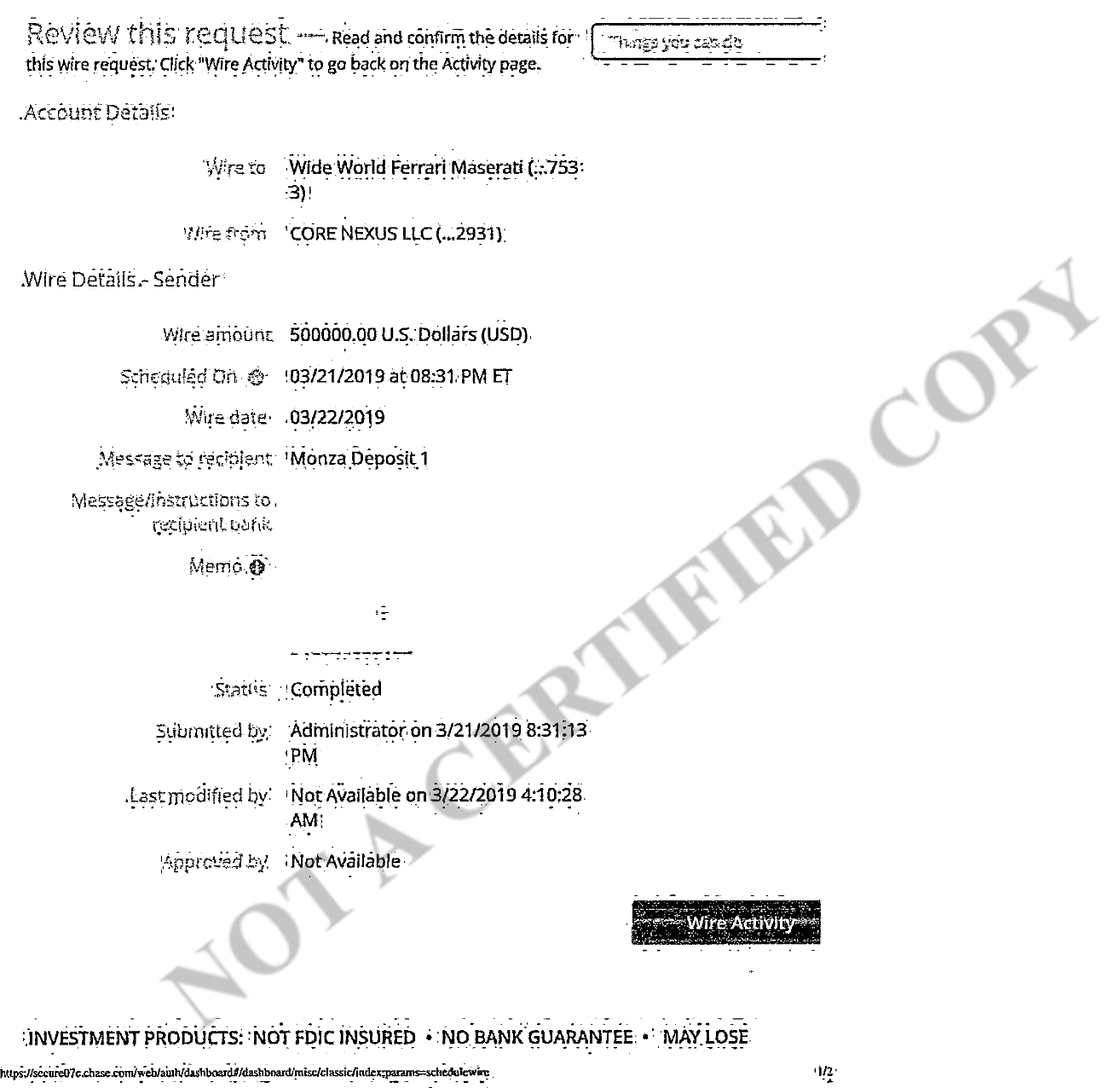
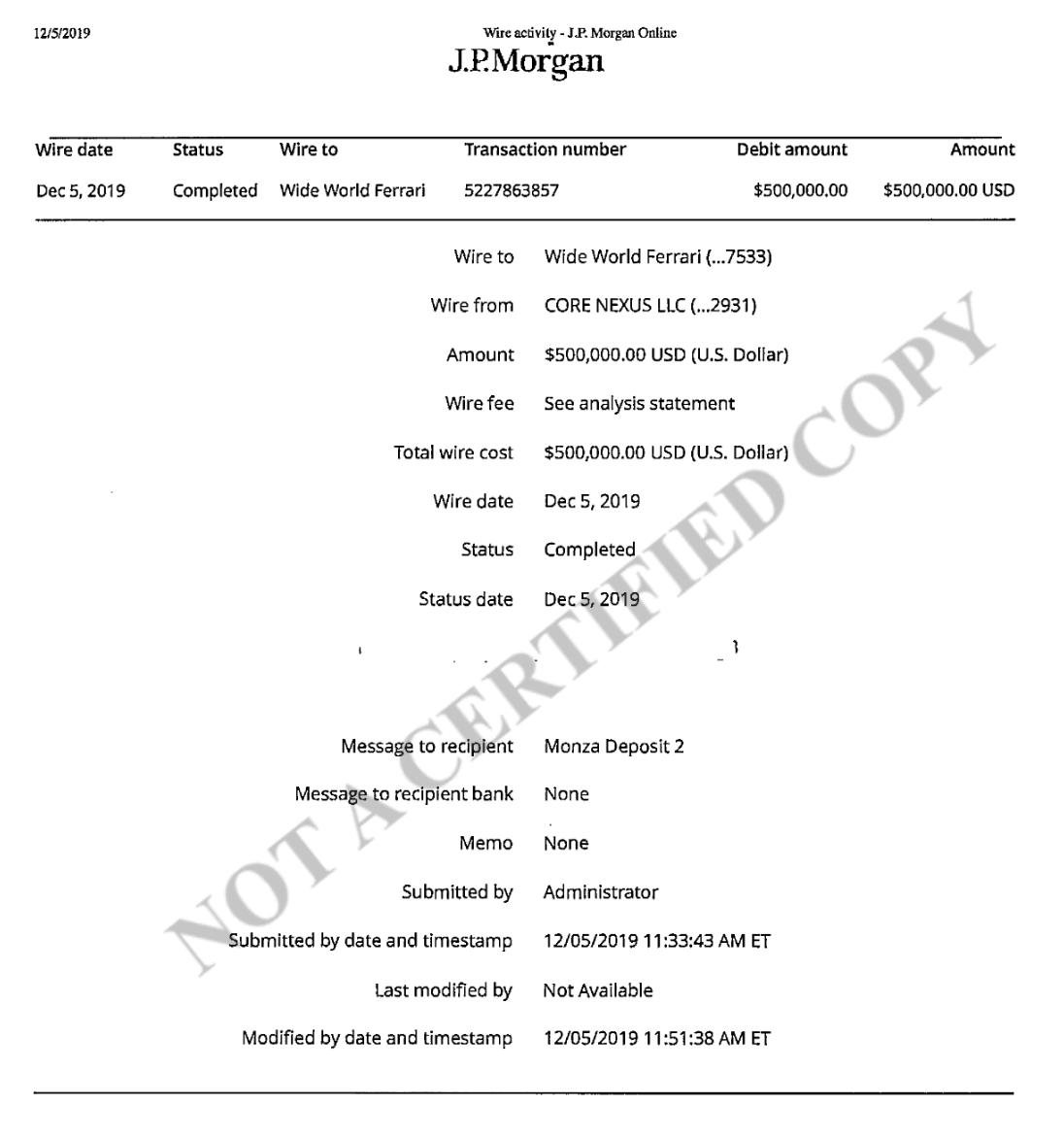

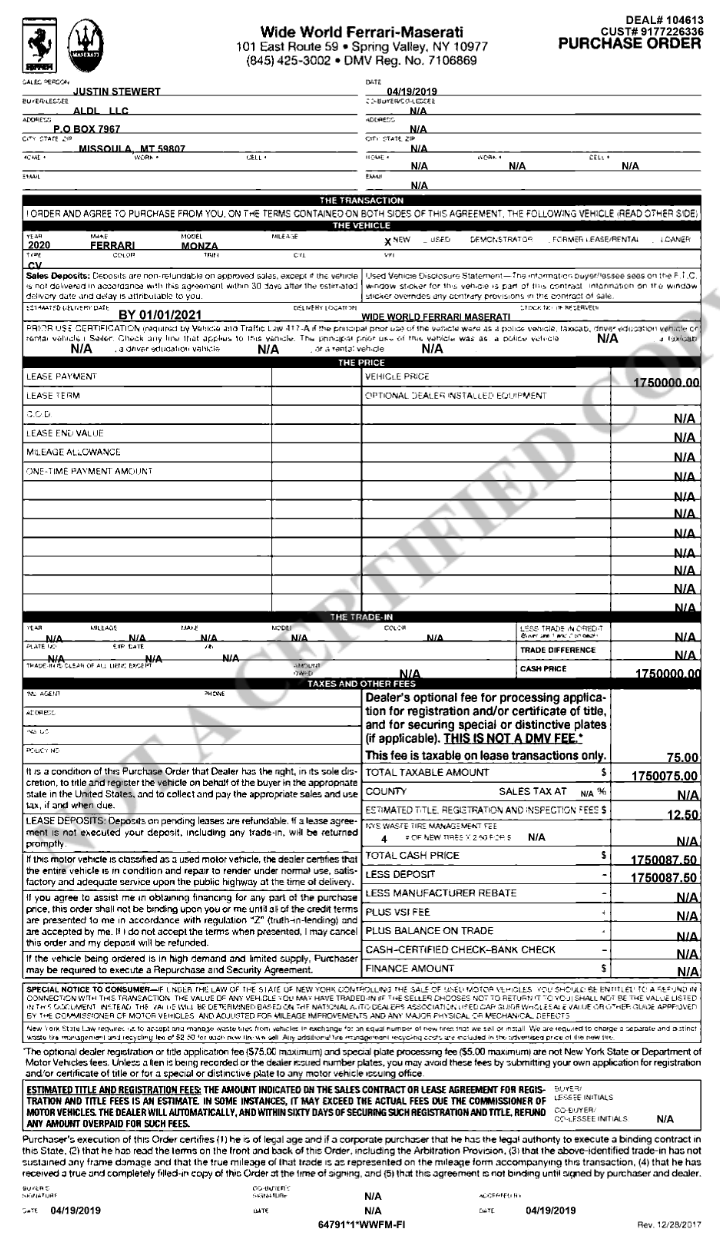
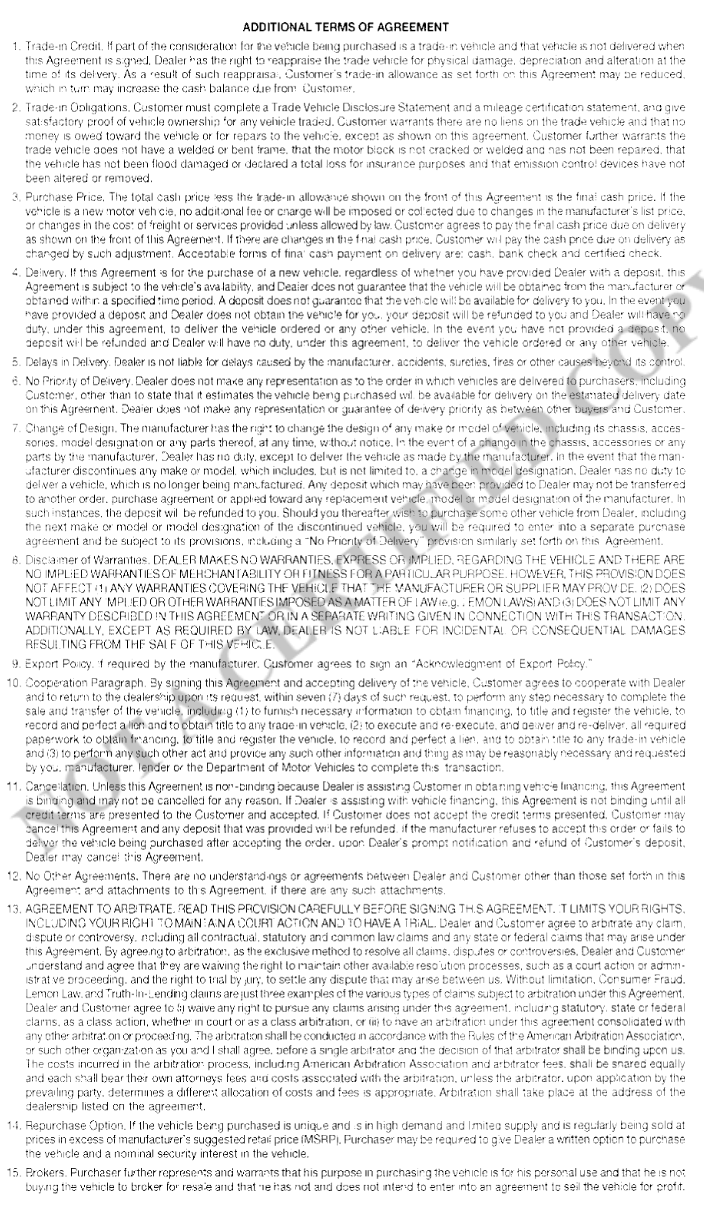
It was the real interstate wire transfers from would-be buyers that got Lesin in trouble with the feds, though. Lesin worked through luxury vehicle brokers to entice clients to make advance payments for vehicles he didn’t have over the last few years. The Monza was far from Lesin’s first sale and he’d worked through some big names in the industry to sell cars, so brokerages were willing to work with him. Per one victim who spoke with The Drive under the condition of anonymity, Lesin had made at least three successful prior sales through one broker before approaching that broker to sell his Monza allocation. At that point, they were inclined to believe it existed.
According to Lesin’s federal indictment, this included $388,273 for one Ferrari from exotic car financing company P.F.S., LLC, for which a bank also lent Lesin $370,000. Lesin also used a Ferrari he allegedly never owned as collateral to secure a $280,264 loan from another bank. Between would-be Ferrari buyers and financial institutions, the FBI says Lesin received approximately $3 million that he used for “personal use and benefit.”
“Based on FBI interviews with bank personnel, we confirmed that Lesin, in fact, did submit false wire transfers to Ferrari brokers and purchasers,” FBI agent Austin Steelman wrote in his affidavit in support of the June 2022 arrest warrant.

When you get down to it, the scam is simple, and not even a new one: Trick people into giving you deposits for cars that don’t exist. Lesin was able to keep it going for so long in part because he allegedly took advantage of the expectation of secrecy and forced would-be buyers to sign a contract—which has been viewed by The Drive—saying they would not contact Ferrari for any reason before, during, or after the transaction.
“Due to the sensitivity of the secondary market and resale of limited production Ferrari vehicles, it [sic] is hereby agreed that the buyer or any of his representatives will not contact the manufacture [sic] or dealership (Ferrari) with regards to this transaction under any circumstances prior to or after this contract agreement,” the contract reads.
Daniel’s father, Alexander Lesin, appeared as a co-founder on some of his son’s LLCs and as a defendant in some of the lawsuits about them accordingly, but according to Ferretti, Alexander may not have actually signed off on it all. “It appears that he was using his father’s name fictitiously and now he’s defrauded his own family,” Ferretti said.
While one victim The Drive spoke with was convinced that Lesin’s father at least helped him evade lawsuits, the federal wire fraud case only goes after Dan, not Alexander Lesin. Daniel’s lawyer Jeffrey Lichtman confirmed this via email, telling The Drive, “As for Alex Lesin, the government has confirmed that he is not alleged to be part of any crime here and will not be charged.”
Lichtman declined to comment further on the specifics of the case. The Drive has reached out to Daniel Lesin as well as his parents for comment but has not yet received a response at the time of publication.
Criminal-Complaint-Steelman-affidavit-supporting-arrest-warrantLawsuits Roll In
The civil court cases against Lesin tell a more complete picture of who got wrapped up in the scheme and how Lesin operated. Buyers who shelled out such cash only to get no Ferrari were understandably angry, with high-end dealership Pagani Beverly Hills, Florida brokerage Veltracon and its buyer Jason Pittack, and Canadian company JPCM all filing civil lawsuits to try and recoup their money.
On July 9, 2019, JPCM paid Lesin’s Core Nexus LLC $700,000 for a 2020 Ferrari Monza SP2 allocation that Core Nexus claimed had been procured through Wide World Ferrari-Maserati in Spring Valley, New York. By early 2020, as the ordering process for real Monza allocations was well underway, the excuses about delays that JPCM and its broker Element 6 Supercars had received from Lesin didn’t match up with what real buyers were experiencing.
A source familiar with the case told The Drive that the buyer became suspicious after learning that Chicago Motor Cars, a dealership specializing in luxury and exotic vehicles, had traded a Porsche 918 Spyder for Lesin’s purported Monza allocation. It was extremely difficult just to get one Monza allocation, and highly unlikely that someone would have two. Lesin told the dealership that the second allocation belonged to his uncle, but that still didn’t feel right. The dealership had a couple of Lesin’s other cars on consignment, but wanted a gut-check on Lesin’s credibility and reached out to at least two other key figures: one to the broker handling JPCM’s purchase, and the other to Rob Ferretti.

Turns out, the documents the dealership received listed Ferretti’s usual Ferrari sales contact there, whom Ferretti and the dealership then called to verify that no, Lesin didn’t have a Monza on order after all, and Lesin hadn’t wired any of his money to them, either. The dealership had just sent its 918 to Lesin in New York, but was able to get it back from Lesin and back out of the deal. (The Drive reached out to Chicago Motor Cars for comment, and has not heard back at the time of this writing.) JPCM, which had sent cash instead, took Lesin’s company to arbitration.
Per court documents, the arbitration petition admitted that Lesin could not deliver the car to JPCM and ordered Core Nexus to pay JPCM $100,000 per month until JPCM’s money was returned. Lesin missed the third payment in this plan, so JPCM took the issue up in a Florida lawsuit on July 14, 2020, and was ultimately awarded the remaining $500,000 plus $11,517.60 in interest.
The second lawsuit filed against Lesin and his companies was from Pagani Beverly Hills. Per court documents, the dealership paid $300,000 cash on Jan. 14, 2020, after entering into a purchase agreement with Core Nexus to buy a new Ferrari Monza SP. The dealership had lined up a buyer willing to pay $2.5 million for the Monza that cost $1.35 million on the order sheet Lesin provided to them, meaning the dealership would have netted a $1.15 million profit. After getting neither the Monza SP nor their money back, Pagani Beverly Hills filed a lawsuit against Core Nexus and its shareholders Daniel Lesin and Alexander Lesin on Jan. 8, 2021, asking for both their $300,000 as well as special damages related to the lost sale and the diminishment of the dealership’s reputation, interest, punitive damages, and court costs.
Lesin claimed that the dealership got cold feet and the $300,000 deposit was non-refundable. Pagani ultimately found out from Ferrari that the order number Lesin provided for the vehicle was fraudulent and that the FBI was already investigating fraud complaints related to Lesin’s allocation sales. The lawsuit was settled for an undisclosed amount on May 25, 2022.
The third lawsuit against Lesin came from Omaha-based Woodhouse Auto Group co-owner Jason Pittack and a Florida-based exotic vehicle brokerage called Veltracon. After making a purchase agreement with Lesin’s companies on Nov. 18, 2019—after JPCM’s purchase agreement with Lesin but before Pagani Beverly Hills’—Pittack paid Lesin’s companies $1 million for a Monza SP Buildable Allocation, wherein the buyer would get to choose all of the specifications of the car. He also paid broker Veltracon $10,000 for the deal.
As with JPCM, Lesin claimed the allocation was through Wide World Ferrari-Maserati, who wasn’t involved and never received a cent of either deposit that was wired to Lesin, according to the amended complaint. The car was supposed to be delivered in spring 2020, but later updates from Lesin pushed that date to the end of 2020—and in that time, Pittack discovered that the allocation he’d paid for had been fabricated. Lesin stopped communicating with both Pittack and his broker Veltracon in May 2020. Veltracon ultimately refunded its $10,000 commission to Pittack, as they could not deliver the car.

Furthermore, the lawsuit claims that Lesin attempted to sell the allocation after Pittack paid for it, citing the lawsuits filed by JPCM and Pagani Beverly Hills as very similar allegations. The amended complaint compared the purchase orders Lesin sent to both JPCM and Veltracon and found that these were largely the same except for the dates, the buyer’s contact info and the inclusion of the model designation on JPCM’s—right down to the same misspelling of Wide World Ferrari salesperson Justin Stewart’s last name. Lesin also referenced the same purchase order deal number when trying to sell the allocation to Pagani.
Pittack and Veltracon sued Lesin and his Core Nexus companies on Jan. 28, 2021, for the amounts each party paid or is now owed per the purchase agreement’s penalty clause: $1.5 million and $10,000, respectively, plus interest, court costs, and “any other relief this Honorable Court deems just and proper.” The case is ongoing, with the plaintiffs saying they’ll pursue punitive damages on top of that amount at a later time.
25-Amended-ComplaintThe Drive tried reaching out to the victims involved in these cases, but most did not respond. One who spoke under conditions of anonymity suspects there are more not named in the FBI complaint or in separate civil lawsuits, as many wealthy victims simply don’t want to make it public that they were defrauded for this much money. Brokers and dealerships have their professional reputation on the line and don’t want that attached to their name, either, even though Lesin’s con was slick enough to catch out many well-established industry players. For some, it’s easier—and less risky—to simply write it off as an expensive lesson learned.
The Arrest
On June 2, 2022, Lesin was arrested following an FBI investigation into the wire fraud scheme relating to Monza allocation sales. One victim who spoke with The Drive under conditions of anonymity said that they reached out to FBI agent Austin Steelman after seeing Steelman’s involvement with the arrest of Champion Porsche VP of Marketing Shiraaz Sookralli for taking $2 million for reservations of limited-run Porsches he didn’t have. Lesin’s Monza scheme was similar enough, and the victim said they were fed up and didn’t want anyone else to be conned.
Following Lesin’s arrest, his parents reached out to Rob Ferretti and asked for help co-signing his release on bail. Ferretti said Lesin’s family gave him the full rundown. Lesin was no billionaire, nor did he come from a billionaire family. His family seems well-off—the family home listed in court documents is a six-bedroom, 7,849-square-foot mansion in New Jersey that was purchased for $2.3 million in 2010, per public records cited by Zillow. Yet they weren’t billionaire well-off and claimed that they didn’t have enough to foot the entire bill for their son’s release. Daniel Lesin was simply trying to fake his way upwards and did so fairly convincingly for five or six years.

“I spoke to his mom, everything that he said ultimately was fake, and he’s got a history of telling tall tales. Her first question to me was, ‘Do you know—has he ever had a job?'” Ferretti said on YouTube. “I’m like, I thought you guys were giving him money every month. They’re like, ‘No, we don’t give him anything. We’ve never given him anything. He used to steal from us.'”
Ferretti ultimately didn’t co-sign with Lesin’s family on Daniel’s release, for understandable reasons. Ferretti told The Drive that the amount hadn’t been set at the time Lesin’s parents reached out, but it may not have been an option anyway. Court minutes from Lesin’s arraignment list the bond as “PTD (stip),” for pretrial detention. It appears as though prosecutors would prefer to keep a close eye on Lesin given that a pre-arrest motion to seal court documents related to Lesin’s arrest notes that he “conducts extensive national and international travel” and “may flee [his] present location, endeavor to avoid arrest, secret proceeds of the crimes, and destroy evidence.”
Cracks in the Illusion
That arrest had been a long time coming, according to Lesin’s detractors. While Lesin never sought fame or influence on social media—his Instagram was a private account that you had to request to follow—Lesin was active on FerrariChat and apparently used the screen name Dansage, according to numerous members. The enthusiast forum quickly sniffed out various inconsistencies with Dansage’s posts, ranging from the claim that he bought two to four cars per month without flipping to the fact that many of the cars he posted were often pictured at the sellers’ garages, not his own. Dansage even asked about balloon financing a 488 Spider—wherein a buyer finances a car with lower payments until the final large “balloon” payment hits—just a year before that claim about buying so many cars per month.

Dansage’s Portofino for-sale ad in particular attracted a lot of scrutiny as well when users were frustrated by the lack of transparency about the car, its location, and whether it was still for sale. Towards the end of the thread, Dansage claimed he sold it to Woodhouse in Omaha, the dealership owned by Pittack. That didn’t line up, either, as FerrariChat user paulchua pointed out, “How could you have sold it to ‘Woodhouse in Omaha’ when the dealer in Texas (yes it was still there) told me personally that the car was not on consignment?”
Boasting on forums about the cars you may or may not have is one thing. On the internet, anybody can be anyone and claim that they own whatever they want. But if you graduate past that and use those same lies to defraud actual buyers of hundreds of thousands of dollars, well, then that’s how you get the FBI knocking.
Got a tip? Contact the author: stef@thedrive.com